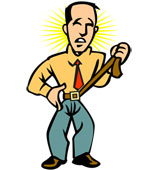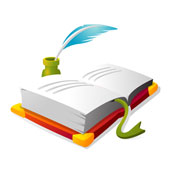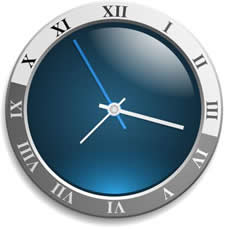NOTE: This is the sixth in a series of several posts David Nygren of The Urban Elitist and I have been cross-blogging concerning the issue of authors (whether traditionally published, e-published, or self-published) actually getting paid for their work.
And it’s my final entry because after reading David’s interview with Tao Lin, I’m tired. Don’t get me wrong. Doing this series has forced me to take a good look at what I’m doing and why. Because of all the things  converging on the world at the same time, I have been forced to take a candid look at my resources and limitations with regard to A) putting my art out there to begin with and B) getting paid for it. It would seem to me that David’s list of what you have to do to get read, much less paid, can be boiled down to 1 starting point:
converging on the world at the same time, I have been forced to take a candid look at my resources and limitations with regard to A) putting my art out there to begin with and B) getting paid for it. It would seem to me that David’s list of what you have to do to get read, much less paid, can be boiled down to 1 starting point:
Get noticed.
Until you do, you won’t get read. Until you’re read, no one has a reason to pay you for your work, much less your writerly ephemera and dross.
This takes marketing.
This takes time. Lots of it. As Paul said over at Publishing Renaissance,
There is a time limiting factor, people expect you to pay as much attention to their work as they are paying to yours. Many people will only continue to read or comment on your bloggedy blog if you read and comment on theirs. As a result a kind of whirlpool effect is generated, a lot of time and energy expended for very little reward.
Well, I don’t know about looking for reward, but in our heart of hearts, that is the goal, no?
I hang out and comment on a lot of industry blogs: writer, publisher, agent, etc. My name-link in the comments section is an opportunity for someone to click and find me, even though I’m simply participating and not actively selling. But I’m selling. I HATE that.  Every single day, something knocks on the door of my brain and says, “Why are you marketing to writers and industry people? Writers have their own projects and if publishers and agents wanted you, they’d’a said so when you were querying.” Every single day, I have the same epiphany:
Every single day, something knocks on the door of my brain and says, “Why are you marketing to writers and industry people? Writers have their own projects and if publishers and agents wanted you, they’d’a said so when you were querying.” Every single day, I have the same epiphany:
Go where the readers are.
Well, where the hell are they?
The minute I started to answer that question for myself, the economy tanked, and I had the startling epiphany:
They’re in the financial doghouse, like everybody else.
 Well, okay. Maybe I should just be grateful my (non-publishing) business has some income. The fact of the matter is, I invested in a leisure time industry (well, two, but that’s a different story). Right now, folks are trying to put gas in their cars to either get to work or get to job interviews. We’ve been extraordinarily lucky thus far, but those around us haven’t. If I think twice about buying a book or an e-book, it’s very likely others will, too.
Well, okay. Maybe I should just be grateful my (non-publishing) business has some income. The fact of the matter is, I invested in a leisure time industry (well, two, but that’s a different story). Right now, folks are trying to put gas in their cars to either get to work or get to job interviews. We’ve been extraordinarily lucky thus far, but those around us haven’t. If I think twice about buying a book or an e-book, it’s very likely others will, too.
I recently got active (well, semi-active) on Twitter and every time I log on, I wonder why I waited so long. I love Twitter. I love it far more than blogs and fora. It’s the methadone for my chronic IRC and Usenet withdrawal (even though I do have a really really good newsgroups provider and I hang onto mIRC like a fiend). When I tweeted my frustration with Amazon and that I feel my presence on Amazon is solely as marketing and visibility, and NOT as a revenue stream, I got this:

Along with the book marketing advice I’ve sometimes seen given: “The best marketing is to write another book, build your backlist,” this had me thinking for days.
- About my limitations as a writer/publisher/marketer.
- About my limitations as a writer.
- About my limitations as a mother and wife.
- About my limitations as a business owner (other than publishing).
- About my obligations and priorities, to whom I owed what first.
- About that little economic concept called opportunity loss.
The sad fact of my life is that I’m not a sales person and I don’t think creatively about ways to market. Tao Lin’s creativity in this knows no bounds, yet it stymies me, even when it’s laid out in detail. Every single new idea that comes to my attention seems like a chore of enormous proportions, adds to my to-do list, and takes the joy out of writing and, moreover, out of meeting people because I start to think of them as sales targets and my web stats start to become the measure of my worth.
Do I want to monetize my art? Yes, I do. I surely do want to make money doing what I love, but I have had to come to terms with the fact that I probably won’t, or at least, not anytime soon. I not only don’t enjoy marketing, I find it drains my energy for anything else in my life I could or should or want to be doing because I’m always chasing that next sale. It decreases my enjoyment in online and real-life interactions.
 As an independent, I can be in this game for as long as I want; I have no restrictions other than whatever my resources allow. I can afford the time to wait out the economy, to build the backlist, to interact with a community of people who like my books.
As an independent, I can be in this game for as long as I want; I have no restrictions other than whatever my resources allow. I can afford the time to wait out the economy, to build the backlist, to interact with a community of people who like my books.
But in the end, it only boiled down to one thing: I had to come to terms with the fact that I wasn’t going to be able to close my main business and write full-time. Not now. Maybe not ever. I had to decide that if the best I can do is make the books pay for themselves and give that many people a good read, then I have to be at peace with that.
Monetizing art? It’s a gamble at best, especially with the roadblocks in the way: market saturation, financial doom’n’gloom, loss of leisure time and money, changing technologies. But it’s not like most of us are going to stop doing the art. I’m not. David’s not. Tao Lin’s not. Zoe, Kel, Robin, J.M. Reep, and Ara aren’t. Scalzi and Wheaton and Gennita Low aren’t.
My instincts say to me, “Mojo,” they say, “a lot of people have paid money for your book and they like it and they want more. Ultimately, your loyalty should be to them, and what you owe them is another book and, if you’re feeling generous, a whole multi-media playground in this world you’ve built.”
Eventually, the economy will cycle around again (economies are cyclical, though it seems everyone forgets that), people will have money, and they will spend on leisure activities. In that time, I will have built my backlist and my world so that those people who find me and want to immerse themselves in what I’ve created will be able to pay for it.
So what have I come to? It’s simple really:
Work at the money-making business I’ve got.
Write.
Be patient.
Patient? you hoot. Yeah, in this society, whatever.
No, really.
If the only real resource you have is time, use it.

That’s the exact conclusion I came to last summer. So far it’s working well as far as building a readership, and it’s starting to get me some name recognition. As for step 2…well, we’ll see.
For me, the key is that I love the process of writing. I love everything about it, from “fostering the world [I’m] building and the characters [I’m] creating” to the actual writing.
I finally came to that last night, when I had a killer idea for the book I’m working on right now. What *I* want to do is give the reader a sort of multi-media experience, ah, without you know, an actual movie or soundtrack. Not in the budget.
Been thinking similar thoughts. But then yesterday, I got my first check from BlogHer. That was cool. But it’s no replacement for my day job. 🙁 So, it’s do the time at the job that feeds me, and then polish my art because I love it.
One important thing Tao Lin both demonstrates and articulates is that having a publisher doing a lot of the time-consuming, non-writing work for you is invaluable. He wouldn’t have the time to write all that he writes and to do all the other things he does if he was spending a lot of time worrying about production and the basics of publicity (though he is doing all that for his own publishing house, so maybe he just gets the most out of all the caffeine he drinks).
In of course agree that the writing is by far the most important and most satisfying thing. It’s hard to find a good balance between that and the self-promotion, especially when a day job gets thrown into the mix. But it is essential.
I can already see myself moving toward more frequent (and less time-consuming, if you restrain yourself) Tweeting and somewhat less frequent blogging. Twitter can keep you in communication and grows your network effectively. Blogging is still there for longer form stuff, but needn’t be relied upon exclusively for self-promotion or relationship building.
So, yes, writing first, then blogging and all the rest. When that masterpiece is written, the network will be in place…and just maybe it won’t be a struggle to get to that point where things just HAPPEN. I don’t believe in the efficacy of struggle, so I just want to write more, write better and keep myself out there and involved.
I have never been able to get into Twitter. Maybe I’m not doing it right. I’ll have to friend you guys (or whatever they call it there) to see how to do it properly.
Regarding the benefits of having a publisher doing the ‘dirty work’…I really do envy that. Still, I seem to have fallen into a groove recently with being able to balance the marketing/business side and the creative side.
Great, great post. Over the past few years, I’ve thought about every point you make, and I agree with every word you wrote
I absolutely believe that the best thing writers can do for their last book is write another one.
But — easier said than done. My last book keeps nipping at my ankles, demanding attention.
It’s a constant struggle to balance its demands with the book I’m writing now.
As for the blogging/commenting/blogging cycle: OY! I enjoy blogging (much to my amazement) but I figured out right away how easy it is to get sucked into the blog/comment/blog/comment timesink.
(I feel guilty just sitting here reading your entry and commenting on it!)
Anyway, no real point here except that you’ve hit every writer’s-dilemma-nail on the head.
I give hardcovers to my local libraries. I can follow the circulations on the county web site.
When the amazon tracking number for my book is over a zillion-and-twelve, the fact that someone has checked it out and is reading it is a comfort.
Also, I knew a long time ago that I will always need a day job; just as I know that my readership will die with me.
I am as sure that my teenage daughter’s generation will rediscover reading as much as they will become avid Morris dancers.
But you know, in the big scheme of things, there are relatively few writers who don’t have to worry about the day job. We’re not alone, and especially in this financial environment. I’m not going to say it can’t be done, but novel writing takes time and from what I can tell (at least in romance), advances aren’t anything to write home about.
Yes, and that’s where self-publishers really lack. I knew that going in. On the other hand, I see authors in romance who A) don’t have much, if any support from their publishers and B) do as much or more marketing (and more creative marketing) than I do. It’s expected and they have a time limit on their books.
My traffic exploded after I got on Twitter. I could NOT believe how effective it was, and all I had to do was write what struck me funny.
I love that.
Perhaps what I’m doing is walking the path to GETTING that balance.
I see this occasionally, but the noise of the MARKET MARKET MARKET people drowns it out. It struck me JUST RIGHT the first time I saw it, and it strikes me that way every time I’ve ever seen it after, and every time I’ve ever repeated it. My instinct.
Yes, and it’s so ENJOYABLE. I’m glad to know I’m not unanimous in my opinion. 😉
In my best Dory Voice. “Just keep writing, just keep writing.” And I, also, am no marketer. Although I find it fascinating, I, like you, get way the heel tired fast when forced to do it. So I keep it to my free reads, my blog, and also like you, twitter, which exploded my hits when I started tweeting.
Dude says…(in sing song voice) Don’t worry….be happy!
“I not only don’t enjoy marketing, I find it drains my energy for anything else in my life I could or should or want to be doing because I’m always chasing that next sale. It decreases my enjoyment in online and real-life interactions.”
Yes. This is the reason I have not made STP available in print. People keep asking me. I keep giving them the same answer: I’d like to write more books, rather than have to spend all my writing time trying to sell the one I’ve already got.
I don’t hate marketing – my husband is a marketer, and he’s taught me some things that make it interesting. But I sure don’t love it the way he does, and I could never be happy spending 40 – 60 hours a week (his schedule) doing nothing but marketing.
The person who devises effective marketing packages for self-publishing companies that their customers can purchase is going to make a lot of money. By effective, I mean it can get you into media and bookstores through the same doors as the marketing departments of traditional publishing houses can.
Forgive my lateness in replying.
Lauri, exactly!
Do we know there isn’t such a service? I don’t know because I haven’t looked, but if there’s not, you’re absolutely correct.
What a hoot, to find my two tweets here.
Do you know how many print-published writers I know who ask the same questions you have? Writers with actual backlists of printed-on-paper books who daily teeter on the edge of being dropped by publishers looking for Blockbuster Books?
I offer you Charles Bukowski:
http://mikecane2008.wordpress.com/2008/08/17/charles-bukowski-outsider-writer-poet/
>>>How do you know that you’re the one [to be a writer]? You don’t know. It’s a shot in the dark. You take it or you become a normal, civilized person from 8 to 5, get married, have children, Christmas together, in comes Grandma, “Hi, Grandma, come in” “Hi, you,” you know. Shit! I couldn’t take that. I’d rather murder myself.
And:
>>>[T]en years ago, I was a postal clerk, down at Alameda Street, sticking letters into slots like this. Within ten years, I’m published in Germany, Norway, France, Holland, Italy, England, uh, you know, more. I can’t name six or seven more. What happened?
And finally:
>>>Your life is your life. Don’t let it be clubbed into dank submission.
Now get back to writing!
Mike, I have to tell you…you’re the one who put me back on track and I’ve finished STAY. I’m 3/4 of the way through MAGDALENE. I’m almost finished designing a book (under my real name), which I’ve enjoyed so much.
I think David’s interview with Sarah Wendell is a good lesson in doing what you love, putting it out there, and letting that love catch on with others.